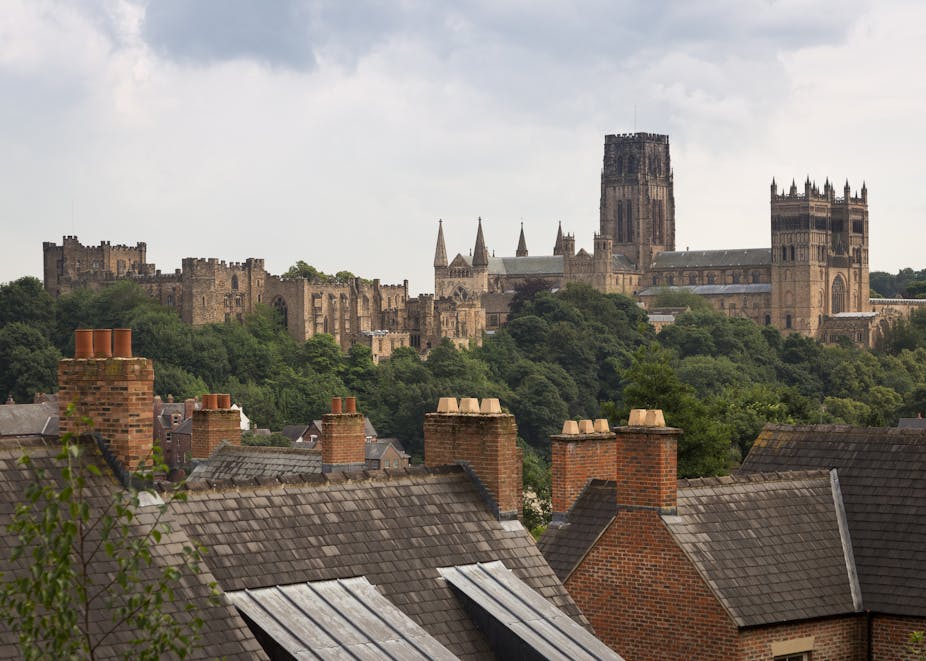The Durham Free School is to have its government funding removed in a snap decision made by Nicky Morgan, the secretary of state for education. The move comes after a damning Ofsted report which found the school inadequate in all four categories, and raises some key questions about faith-based schools, parental choice and the future of the free school project in England.
Set up in 2012 and based around a Christian ethos, Durham Free School had been struggling since November 2014 when Ofsted declared it inadequate in all areas. The regulator stated that the school’s leaders, including its governors, placed too much emphasis on religious credentials when recruiting key staff, and not enough on excellent candidates with good leadership and teaching skills. They also declared that the leaders were failing to prepare students for life in modern Britain and that some students held discriminatory views of other people who have different beliefs or values from themselves.
This is a far cry from where the school began. Its first head, Peter Cantley, speaking in an interview with the Northern Echo in December 2012, declared it would: “bring extra investment to the area and increase parental choice ” and would categorically not draw funding from nearby schools. He went on to describe it as having the potential to: “empower local communities, responding to their educational aspirations.”
Politically inconvenient?
The decision to close the school was taken very quickly, with Morgan speaking in parliament just an hour after the school had received a letter warning it had two weeks to notification of an intention to terminate its government funding.
The abrupt closure of the Durham Free School is already being seen by some parents as a politically motivated move that dismisses the needs of parents and pupils. One parent at the school told me:
I can only conclude that the bad publicity that has been generated of late regarding this school is causing embarrassment to the government at a time when they are considering the future governance of the UK following the elections, and will seek to dismiss this as a failed school in order to save the others and save their face. Education should NEVER be used for political gain by any party member in this manner, but because of this I have to find a new school place for my daughter.
The school’s headteacher has said he will appeal against the government’s decision.
It was far from easy to set up the school in the first place. Press reports dating back to 2012 give some indication of the levels of resistance that the school faced before finally opening its doors. Its critics, among them, a senior education officer at Durham County Council, voiced concerns that there was no need for another secondary school in the city. Dave Ford, then head of achievement services at Durham County Council voiced considerable concerns over what he described as, “the fragmentation of funding.” Funding, that in the opinions of those opposing establishment of the new school, would have been better spent on existing schools.
No sticking plaster

The idea of borrowing policies from one country and applying them like a sticking plaster to another is very common in education. In the case of free schools, the English policy was largely developed from the Swedish free school model, with little heed paid to problems revealed by research.
One such study carried out by the Institute of Education’s Susanne Wiborg concluded that in Sweden – one of the world’s most egalitarian societies – free schools increased segregation and impeded social cohesion. Back in 2010, she posed a number of questions aimed at those intending to adopt the Swedish free school model, including whether more school choice is desirable: “if free schools do not reconcile high academic standards and social integration?”
Choice and challenges
Sweeping changes to the education system have brought new school freedoms designed to offer more choice to parents combined with diminishing levels of local accountability. The speed and scope of these changes are without precedent and have led to grave concerns about the quality of education and the capacity of the new system to reduce unacceptable levels of educational inequity: a problem which has dogged the English system for some time now.
In the period since the introduction of the free schools policy there have been substantial challenges for education – not least the political conflation of education and the battle against extremist teaching. This began with the the “Trojan Horse” affair in Birmingham schools and continued with allegations of links to extremism in Tower Hamlets in London.
These events, set against a background of growing national and international unrest, have resulted in changes to education and school inspection policy that look to combat the rise of extremism. The resultant focus on the policing of British values from pre-school level upwards has brought a whole new dimension to the meaning of school freedom and parental choice.
Where next?
The free schools policy is hanging in the balance, as University of Birmingham doctoral researcher Rebecca Morris has pointed out in a commentary on the future of free schools.
It would seem that, in the case of Durham Free School, its students are paying a very high price for the so-called luxury of parental choice in a market where schools can apparently be there one moment and gone the next.
The seductive market ideology persists, couched in the primacy of supposed parental choice. When schools fail, we blame everyone: the teachers, the governors, the management, the inspectors. The real culprit – the ideological spectre of the market – is forgotten in all of the media frenzy and political posturing that follows.

